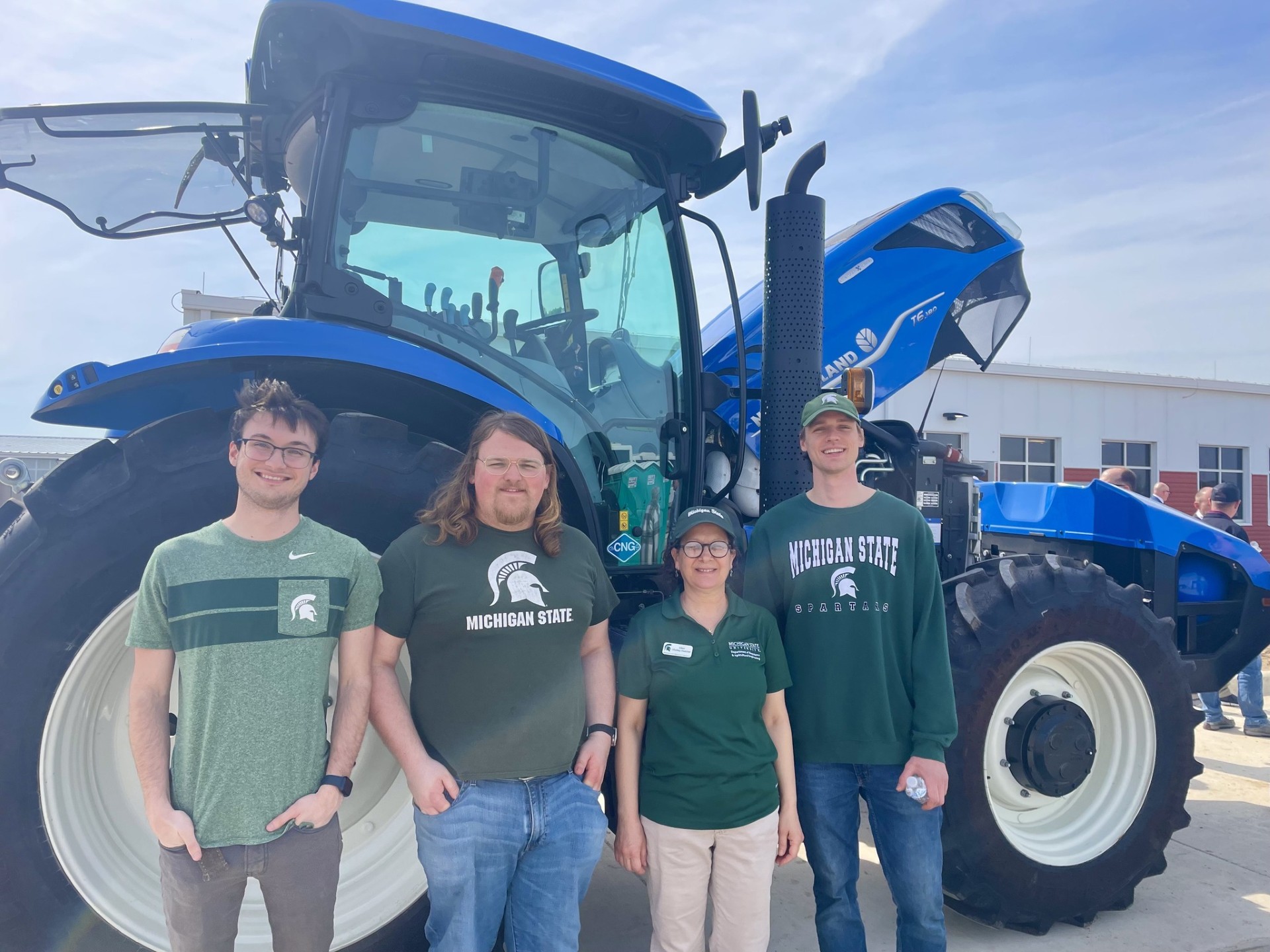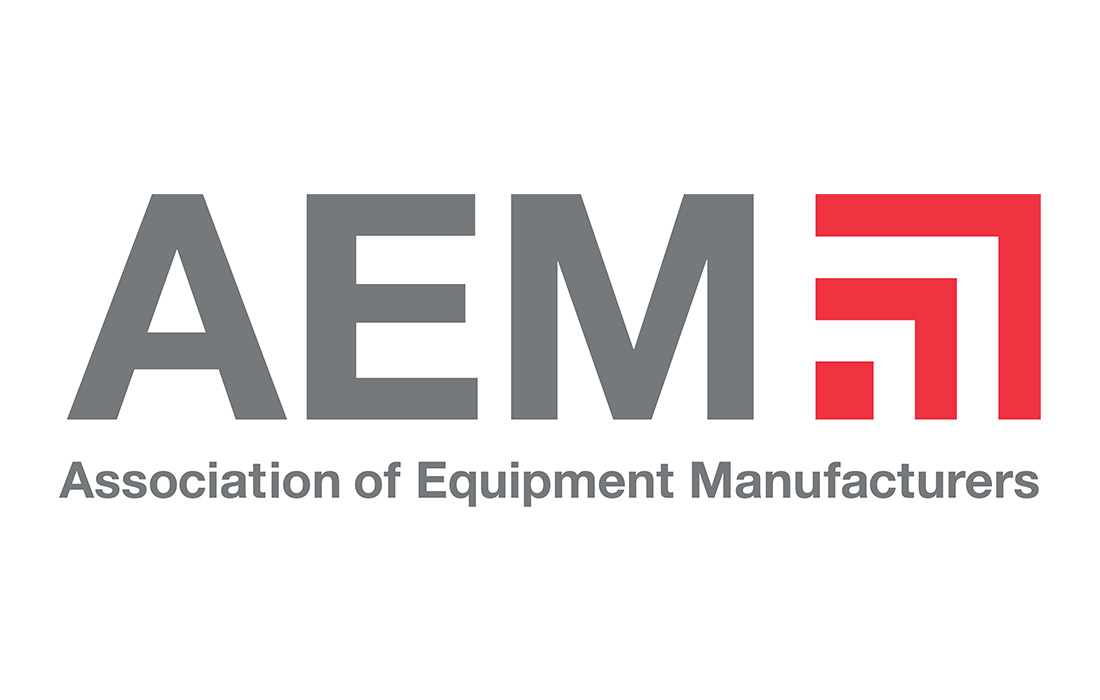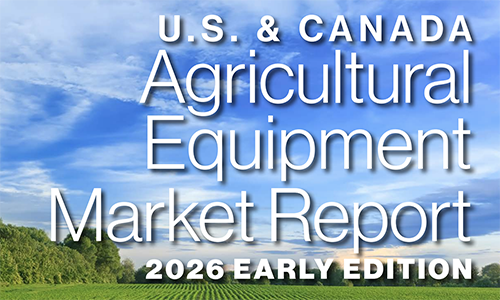By Mike Schmidt, AEM Director of Industry Communications --
“The whole ag equipment industry is elevated when you have a workforce with the knowledge of the future technology that’s coming.” – New Holland Agriculture’s Kelly Burgess
Finding and leveraging opportunities to team up with agriculture educators and institutions has long been a priority for AEM member company CNH Industrial. So, when the opportunity arose to foster a partnership with Michigan State University’s College of Agriculture and National Resources (CANR), CNH leaders jumped at the chance to connect, collaborate, and make an impact.
“When we looked at some of the methane tractors we wanted to get into the agricultural space in education, Michigan State left a mark on us in terms of managing methane production,” said Kelly Burgess, who works as regional aftersales manager for CNH Industrial subsidiary New Holland Agriculture.
Sustainability is everyone’s business. Whether it is through minimizing operational impact on the environment, aligning with ever-evolving regulations, or supporting a more sustainable world, the equipment manufacturing industry’s future depends on the responsible use of natural resources. AEM has been committed to addressing societal and safety issues on behalf of the industry for 130 years. For more information, visit aem.org/sustainability.
The newly established partnership provides students at Michigan State’s CANR access to a New Holland T6.180 Methane tractor – the world’s first 100% methane-powered production tractor – for educational and research purposes.
According to the company, the tractor produces 98% less overall emissions compared to European Stage V emission limits and achieves a 10-15% reduction in C02 emissions when using biomethane. That’s notable because, using biomethane from biodigesters or compressed natural gas (CNG), can help farmers become more self-sufficient from an energy perspective.
“So, when we look at the New Holland brand, which is committed to being the clean energy leader, this is the perfect example of taking waste and working it through a process to make energy and farm the ground,” said Burgess.
Several months back, Michigan State emerged as a viable candidate to support some of CNH Industrial’s sustainability-related goals and priorities after the school’s CANR underwent an expansion effort. As a result of the expansion, the school saw a significant increase in cattle coming through its dairy operations and CANR officials reached out to the industry regarding food waste.
“Having increased the size of their digesters significantly, they told us to come take a look at what they were doing,” continued Burgess. “They were trying to do a full circle of farming in a dairy and livestock-type scenario on the farm, to minimize the waste and maximize the recovery, including the digestion of not only the manure and waste from the feedlot and the dairy, but also from outreach to other industries in the area that generated food waste and such.”
Ultimately, he added, Michigan State was taking the waste and creating energy with it. The Michigan State Anaerobic Digester could produce about 350 kW of electrical power that was put back into the grid via a combined heat and power generation plant.
“What I really liked about their setup was the amount of community outreach they had with the locals in East Lansing,” explained Burgess. “They had an agreement with one of the beverage bottlers in the area to bring in spent tea leaves and running it through the digester. Then they were offering to digestate once it was complete through the digestion cycle, it was available as a fertilizer by the ton to the local producers.”
The New Holland T6.180 Methane tractor was unveiled at the MSU Innovating with Dairy symposium held a few months ago. Under the terms of the partnership with CNH, CANR will have cost-free access to the New Holland T6.180 Methane Tractor for one year, creating opportunities for students, researchers, and the public to see an end-to-end methane tractor ecosystem. The tractor will be used for educational and research purposes at locations throughout campus, including the MSU Agronomy Farm, Dairy Cattle Teaching & Research Center, and south campus farms.
“When you release methane into the atmosphere, it’s about 24 times as bad as CO2 for heat retention in the atmosphere,” said Burgess. “By essentially taking a negative you can turn it into a positive and get the work out of it for producers. It’s an important technology for the full circle of managing everything on the farm. Not just the commodities, but the waste.”
New Holland and its parent organization, CNH Industrial, seek out partnerships like one that was established with Michigan State to find new ways to unlock modern technologies, utilize waste to make energy, and help producers farm the ground. Furthermore, according to Burgess, the partnerships provide an opportunity to teach and empower the next generation of ag professionals.
“The intent is to drive and build students that can go out and thrive effectively in the ag marketplace,” he said. “So, for us, it just seemed like it was a given that we would want to partner with a university and put the technology in their hands and in their control.”
Companies and brands like CNH and New Holland are increasingly becoming aware of the benefit of sharing their equipment and technology with educational institutions, so as to serve a dealer, supplier, and end-user appetite for being more environmentally sustainable. And, for Burgess, that serves as an opportunity the industry to elevate young professionals and prepare them for what lies ahead.
“Educational institutions are incredibly grateful for us being able to supply machines – be it on loan, lease, or donation. They love having access to the equipment, and they build their curriculum around it,” he continued.
“Then there’s the students. When you hear it from them, and they have the confidence to service the equipment you’re in production with, it’s so great. And when you invest in education, everyone wins,” Burgess added.





